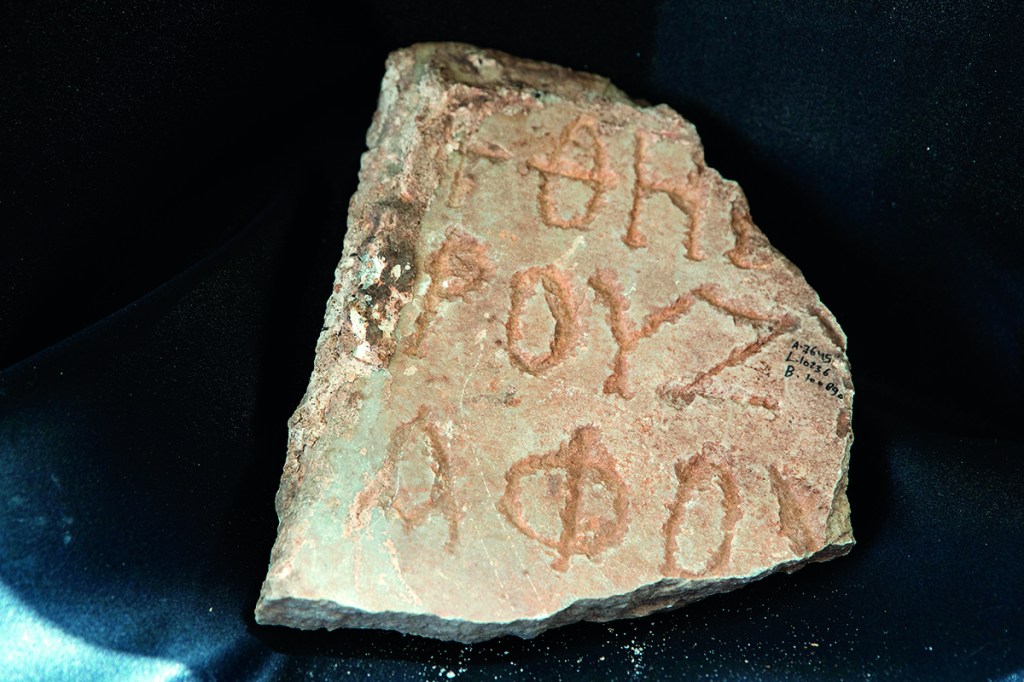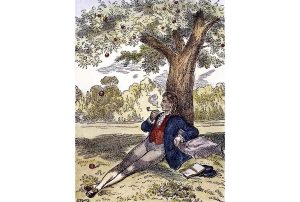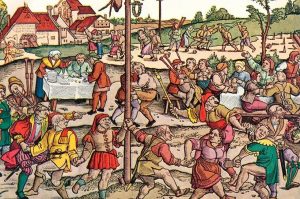In a plea for vocational education, Sen. Marco Rubio famously remarked that we could use ‘more welders and less philosophers’. Doesn’t everyone know that ‘skills pay the bills’?
If things weren’t bad enough, the rise of deconstruction and critical theory has created a generation of humanities scholars who themselves see little value in the works they study, insisting that famous art and literature emerged from racist and sexist power structures.
What sensible young person would borrow $100,000 to be educated in these pointless disciplines? Eric Adler, a classicist at the University of Maryland, has the answer: anyone who wants to understand his own humanity. Adler’s invaluable survey not only defends the humanities: it even lays out how their allies have fallen short.
Adler first points to Aristotle, who argued in the Politics that the liberal arts were essential for freeborn citizens. Cicero later defended the right of the Greek poet Archias to be recognized as a Roman citizen: Rome could only thrive if the learned were permitted to ‘speak a bit more freely about the studies of civilization and literature’. Early Renaissance scholars such as Petrarch also elevated the humanities above vocational disciplines: ‘Petrarch turned to ancient Roman examples of heroism in order to achieve what Italian humanists saw as education’s primary goal — the strengthening of character.’
This is the great theme of Adler’s important book: the only battlefield upon which the humanities can be successfully defended is the constant human struggle to improve character. For young people, this cannot be done through moralistic sermons, but by transmitting valuable content with imaginative histories that stir them toward a more virtuous way of living.
Yet the defense of content is precisely the battlefield that has been avoided by many of the humanities’ defenders. After Petrarch, many Renaissance scholars began to stress the mental rigor of ‘logic and linguistic analysis’. From their earliest days, therefore, many European universities adopted a careerist curriculum, emphasizing subjects such as ‘civil and canon law, theology and medicine’.
This debate came to a head in the late 19th century. As science and Darwinism advanced, their supporters began to attack the value of the humanities. The German research university, with its model of specialization, increasingly became the model — to the detriment of the English Oxbridge model with its emphasis upon the classics.
Adler cleverly crystallizes the entire 19th century debate into one Phi Beta Kappa address given by Charles Adams at Harvard in 1883. Adams, the great-grandson of John Adams, blasted Harvard for its classics requirement, calling it a ‘Fetich’. That the bluest of blue bloods would call knowledge of Greek ‘a positive educational wrong’ sent shock waves through the classicist community.
Adams’s speech provoked numerous inadequate defenses of the classics. Greek was needed to study the Bible, some classicists insisted. The scientists retorted: why do we need to read pagans to understand the Bible? Others argued that the classics instilled ‘mental discipline’, to which the scientists replied that math and science were far more rigorous.
Adler finds a most robust defense of the humanities in Irving Babbitt, Harvard’s famous professor of French. For Babbitt, Adler writes, the content of the humanities matters most because ‘profound works of art, philosophy, religion, and literature at their best encapsulate the wisdom of the past, which can compel the young to determine a sound philosophy of life’. When Babbitt learned of Harvard president Charles Eliot’s decision to drop the classics requirement and institute a system of electives, he remarked that ‘the wisdom of the ages is to be naught compared with the inclination of a sophomore’. Babbitt despised the German university’s goal of discovering something ‘new’ in ancient works: this specialization produced doctoral dissertations that explored ‘the ancient horse-bridle and the Roman doorknob’, a mountain of trivia that is peripheral to human experience. Babbitt insisted education had only two goals: wisdom and character.
Adler concludes with a surprise. He accepts the argument of the multiculturalists that many cultures have things to teach — but he then insists that only ‘masterworks’ should be included in the curriculum. The Battle of the Classics is not your typical call to restore the western canon to the center of the university curriculum; in his closing pages, Adler even recommends a wide-ranging set of masterworks from diverse cultures. Adler wants universities to include culturally diverse works into the curriculum, but he insists they avoid shallow texts that lead to a ‘tokenizing pursuit of representativeness for its own sake’. Select only those works that enlighten students about the human condition and ‘elevate and enrich their souls’. For supporters and skeptics of the humanities, The Battle of the Classics is essential reading.
This article was originally published in The Spectator’s January 2021 US edition.


















